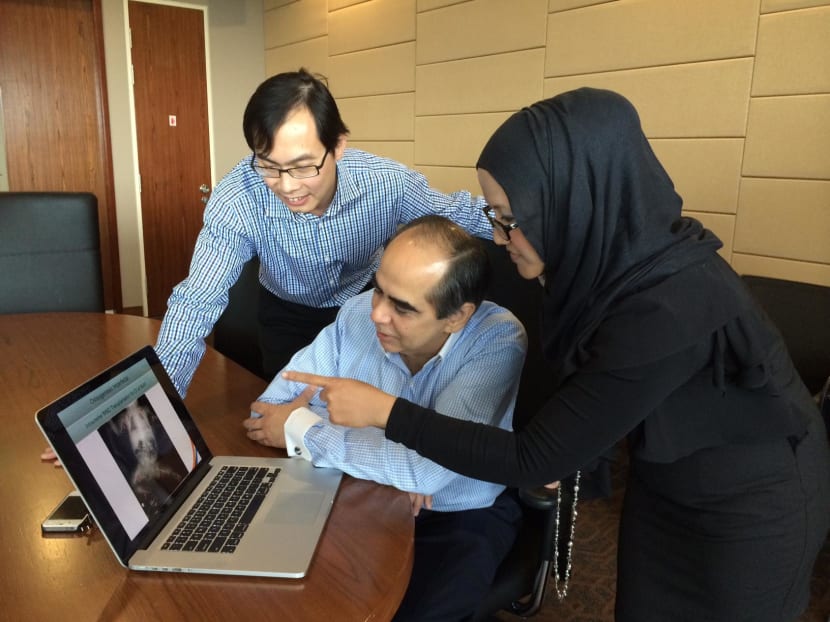Breakthrough stem cell treatment carried out at NUH
SINGAPORE — A four-year-old Taiwanese girl who suffered from Osteogeneis imperfecta (OI), or brittle-bone disease, as a baby is now “doing well” after undergoing a stem cell transplant carried out by a team of experts from the National University Hospital (NUH).

Members of the Singapore team that conducted the research and administered the stem cell treatment, (from left) Prof Jerry Chan, Prof Mahesh Choolani and Dr Citra Nurfarah Mattar on Dec 17, 2013. Photo: Tiara Hamarian
SINGAPORE — A four-year-old Taiwanese girl who suffered from Osteogeneis imperfecta (OI), or brittle-bone disease, as a baby is now “doing well” after undergoing a stem cell transplant carried out by a team of experts from the National University Hospital (NUH).
In the case, which was published in the medical journal Stem Cells Translational Medicine yesterday (Dec 16), the baby was treated with bone-forming mesenchymal stem cells, connective tissue cells that can form and improve bone tissue.
The first injection of stem cells through the womb was administered in 2008, when the girl was a 31-week-old fetus. A second injection was given when she was a year old.
The girl has since not suffered any new fractures. Today, she is an active child who can even take part in sporting activities.
The clinical breakthrough fetal stem cell treatment, a first for NUH and in Asia, was made possible due to an international collaboration with researchers from Singapore, Taiwan and Sweden to treat two babies with OI.
The other baby who received the same treatment in 2005 was from Sweden. Both children are doing well.
OI affects one in 20,000 children globally and often leads to severe widespread bone damage such as numerous fractures. OI is among the estimates 6 per cent of fetal abnormalities diagnosed at the NUH’s Fetal Care Centre annually.
The team that conducted the research and administered the stem cell treatment over a span of five years was led by Professor Mahesh Choolani, Associate Professor and Senior Consultant of Department of Obstetrics & Gynaecology.
“We are extremely heartened by the results of this transplant and are proud to have been part of this effort to develop a potential new treatment method for OI,” said Prof Choolani.






